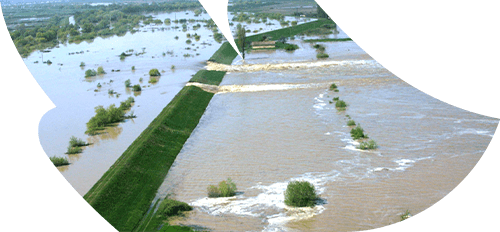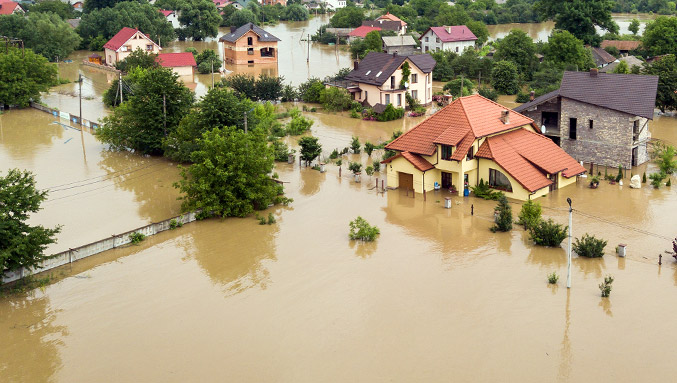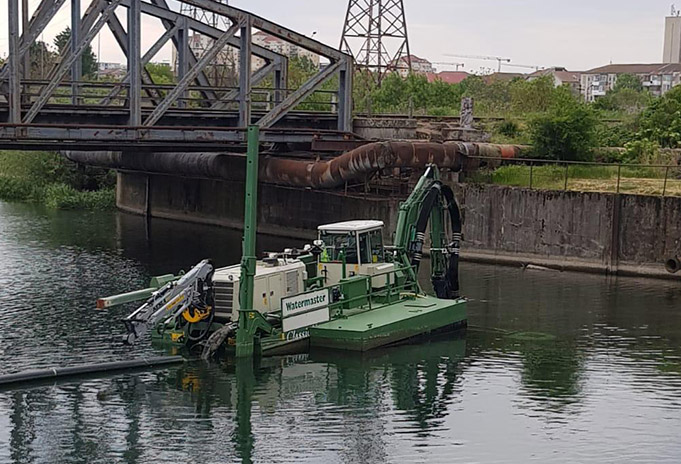Integration of Flood Risk Management into the Spatial and Urban Planning and Development of the flood insurance Scheme



Since 2020, the World Bank (WB) has been offering Technical Assistance (TA) to the Government of Romania (GoR) for the Integration of the Flood Risk Management into the Spatial and Urban Planning and Development of the Scheme for Flood Insurance.
The project is financed under the EC Structural Reforms Support Programme (SRSP) of DG Reform and having the Ministry of the Environment, Waters and Forests (MEWF), the ”Romanian Waters” National Administration (ANAR) and the Ministry of Development, Public Works and Administration (MDPWA) as main beneficiaries.
The project has been developed as needed after the implementation of the 1st cycle of the Floods Directive, in order to meet the challenges coming from: the coordination of strategies on urban and spatial planning and the flood risk management, as well as the implementation of flood insurance. In Romania, urban and spatial development rules consider only partially the information on flood hazard and risk and only a limited number of lodgings have implemented the insurance scheme managed by PAID which is a key element for recovery and increasing the resilience to floods.

The POOL for Natural Disaster Insurance (PAID) is a private company that manages the mandatory home insurance system. The natural disaster insurance policy (PAD) covers damage caused to the home by floods, earthquakes or landslides (all only due to natural causes).
What is PAD?
PAD is the first step in housing insurance, in the context in which Romania is a country with a significant exposure to natural disasters.
In Romania it is mandatory to insure your home against natural disasters, the mission of the PAD policy being to offer people the opportunity to have a solid starting point for the reconstruction or repair of homes.
Technical Assistance objective
The TA objective is to strengthen the capacity of Romania for integrating the flood risk management into spatial and urban planning, in order to ensure a safe future in the water field for the Romanian population, economy and environment, as well as the alignment to the EU legal requirements for water management.
This project will be a supplementation of the activities carried out under the aforementioned project, RO-FLOODS.
Project activities are structured by 2 components: The stocktaking and preparedness stage and the Support stage for improvement of the flood risk management.
During the first stage of the project, the main activities involve the current status analysis in terms of flood risk management, spatial and urban planning, the flood insurance scheme; the collection of international best practices relevant for the Romanian context and the exploration of the opportunities for coordination with other projects related to flood risk management in Romania.


The implementation of this stage has resulted in: the Stocktaking Report and the Report on the analysis of EU and international best practices.
Within the second stage, a more detailed analysis will be conducted regarding the challenges at the level of 4 pilot Administrative Territorial Units (UAT- Unitati Administrativ Teritoriale) (3 urban: Timisoara, Resita and Pitesti, and a rural one: Saucesti commune, Bacau county), underlying the preparation of a guide for the local authorities in order to improve the integration of flood risk management into the spatial and urban planning. Besides, recommendations will be drafted regarding the potential need for adapting the flood insurance scheme in order to improve post-flood resilience and recovery.
These activities are carried out under the coordination of a technical group made up of representatives from MEWF, ANAR, MDPWA, as well as from WB, and the results obtained will be available and sent over to stakeholders.
 Weather Warnings
Weather Warnings
